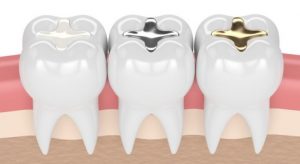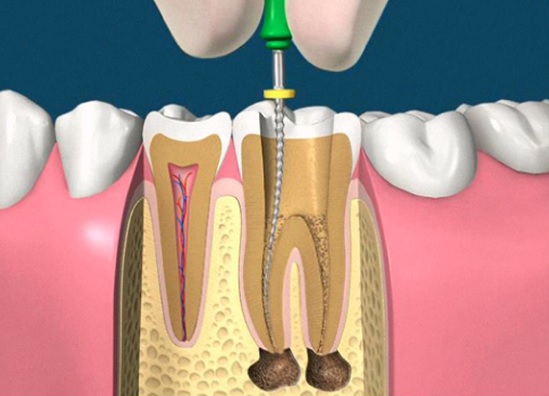What’s a Dental Cavity?

If plaque isn’t removed effectively, it results in demineralization of the enamel layer, and the decay enters much softer dentine, and here the decay spreads faster.
Enamel is the hardest substance in our body. Still, unfortunately, the build-up of plaque can destroy even the most resilient layer of enamel, which often leads to decay reaching the dentin and eventually the pulp or the nerve of the tooth. At this point, the tooth becomes sore.
What causes the cavity?
Bacteria are present in all areas of the mouth. They feed and metabolize the sugars in our food and, as a byproduct, release acid that wears down the enamel and causes cavities.
Small cavities may not cause pain, and the patient may not notice the early signs of a cavity formation. The process of remineralization by fluoride, which is found in most toothpaste, may reverse the progression of the small holes.
It’s essential to have a regular check-up with your “dentist near me” to treat early-stage cavities and prevent them from becoming larger, which can lead to severe toothache and infection.
What is a Dental Filling?
Your tooth may need a filling because you have a dental cavity, or a tooth structure is lost due to trauma, excessive grinding, or brushing too hard. A dental filling is a procedure used to fill the cavity in the tooth.
The aim is to restore the tooth as close as possible to its original form and function and stop the development of tooth decay or worsening of other non-carious conditions that could be affecting your teeth. Dental fillings usually are tooth-colored, consisting of a polymer used to bond or adheres to the tooth surface.
Tooth Fillings procedure
A tooth filling Sydney procedure is usually quick and straightforward; it normally takes around 30-45 minutes. First, your dentist Sydney will administer local anaesthesia to numb up the tooth and the surrounding area for your comfort during the procedure.
They will then remove the decay in your tooth with a high-speed and a slow-speed handpiece. An adhesive material is then used to bond the tooth and the composite.
Next, the composite is applied to restore your tooth. Finally, the Sydney dentist will check the bite for any high spots and polish your teeth filling.
How long do Fillings last?
Dental fillings Sydney are very resistant, but they won’t last forever. Factors affecting the life span of your dental fillings include the material, your oral hygiene, your eating habit, and the location of the fillings.
Some materials like amalgam or silver filling are more durable and can last up to 15-20 years. On the other hand, composite materials are preferred because of their esthetic properties, and they last around 7-10 years.
How do I take care of my Fillings?
The best way to take care of your fillings is to treat them like the rest of your natural teeth. For example, brush your teeth at least twice a day, floss daily, pay attention to your gum line, avoid excessive sugary foods and soft drinks, which can lead to decay formation around or under your filling.
The average tooth filling cost is between $130 to $250 for a simple one to two surface filling and $250 to $400 for a three or more surface filling. At Sydney CBD Dentistry, our dental fillings cost ranges from $150 to $350, depending on the complexity of the filling.




